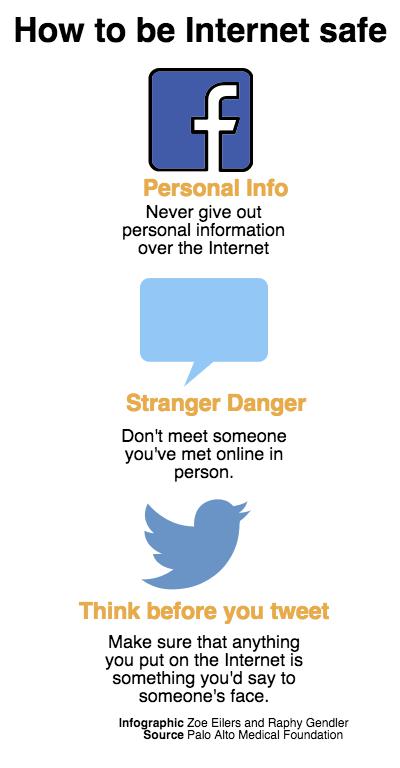Identity theft closer than you think
Internet safety decreases risks
January 22, 2016
“It’s A Match!” The famous phrase that has created relationships since 2012 also doubles as the start to my identity crisis.
It all began in the car over winter break when a Snapchat from a distant friend appeared on the lock screen of my phone. He sent a picture of himself smiling along with the caption “we matched on Tinder!” which seemed unbelievable, because I don’t have an account on the infamous app. I asked him to show me what he was talking about.
Three screenshots rolled into my phone — he’d had a conversation with an alias dubbed “Bridget,” sharing an uncanny resemblance to my name, Brigid. The picture on the profile was one from my Instagram. It never crossed my mind that someone would steal my identity for a dating platform.
In the conversation “Bridget” had with my friend, they told him to add them on a different Snapchat that wasn’t mine. Busted. All my friends added this mystery person on Snapchat to do some sleuthing, but none of them were added back.
My friend had been “Catfished,” the popular term for luring someone into a relationship with a fictional online persona.
This hidden danger of the internet shocked me. With just a picture, my identity was stolen. I thought I had taken the necessary precautions to keep my accounts secure, but the settings failed me.
 I emailed Tinder asking them to take down the profile but never received an email back. Unfortunately I never figured out who “Bridget” was, but it made me realize I need to be more careful on social media.
I emailed Tinder asking them to take down the profile but never received an email back. Unfortunately I never figured out who “Bridget” was, but it made me realize I need to be more careful on social media.
My experience goes to show what you put on the internet is not necessarily safe, and people online aren’t always who they say they are. Social media users must be careful, because someday someone could make a fake profile using a fake picture.
Although social media can be fun, it’s very easy for it to become dangerous. In a sense, I was lucky — a fake Tinder is nothing compared to many other types of identity theft.
Keep your accounts private, make sure you know who follows you and be aware of who you’re friends with on social media. Parents and schools should teach internet safety because young people need to have a better understanding of what security measures exist. Students must be able to prevent the stories they hear about identity theft from happening to themselves.



